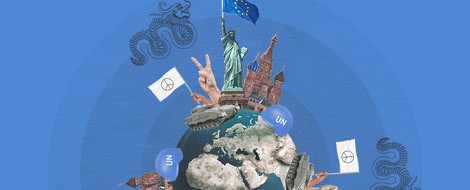Your podcast discovery platform
Curious minds select the most fascinating podcasts from around the world. Discover hand-piqd audio recommendations on your favorite topics.

piqer for: Global finds Globalization and politics
Rosebell is a multimedia communications specialist, journalist and award-winning blogger with experience in gender, peace and conflict. Currently works on public interest litigation for gender justice with focus on Latin America -Africa learning. Rosebell holds a Masters in media, peace and conflict studies from the University for Peace in Costa Rica. She is a World Economic Forum Young Global Leader.
Women Of Congo: We Do Not See Ourselves As The “Rape Capital Of The World"
Back in 2011, a Danger Poll indicated that the Democratic Republic of Congo was among the ten worst places in the world to be a woman. I wrote a blog piece with my thoughts on what these labels do and what they don't achieve. And what they mean for people in these countries who work everyday to bring about change. I concluded the entry by stating that "It should also be told that despite the rapes, Congo has got women and men that are making shifts in making their communities better for all and that the redemption of Congo cannot come about by just throwing around labels."
Reading Justine Masika Bihamba's piece today on yet another label that arose in UN circles fills me with hope that people coming from these troubled areas will always stand up for themselves. This other label, calling the provincial town of Goma in Eastern DRC the 'rape capital of the world' must be challenged, too.
As people from Congo, we are often asked whether we don't have larger problems than those labels, such as getting the rapes to stop. I understand such questions to be a bid to shut out the voices of those who seek to teach the world to see them as they see themselves in spite of the hardships they face.
Bihamba's assertion is quite true: "Congo is a nation of sisterhood and solidarity. We are changing our country from within, risking our lives to speak out and taking up the political fight against sexual violence — rather than just taking notes while men speak."
A social worker herself, who has worked with victims of sexual violence tells the world about the influence Congolese women hold within their communities. She speaks of women putting their life on the line. In short, they are not mere victims of sexual violence but survivors contributing greatly to their country.
